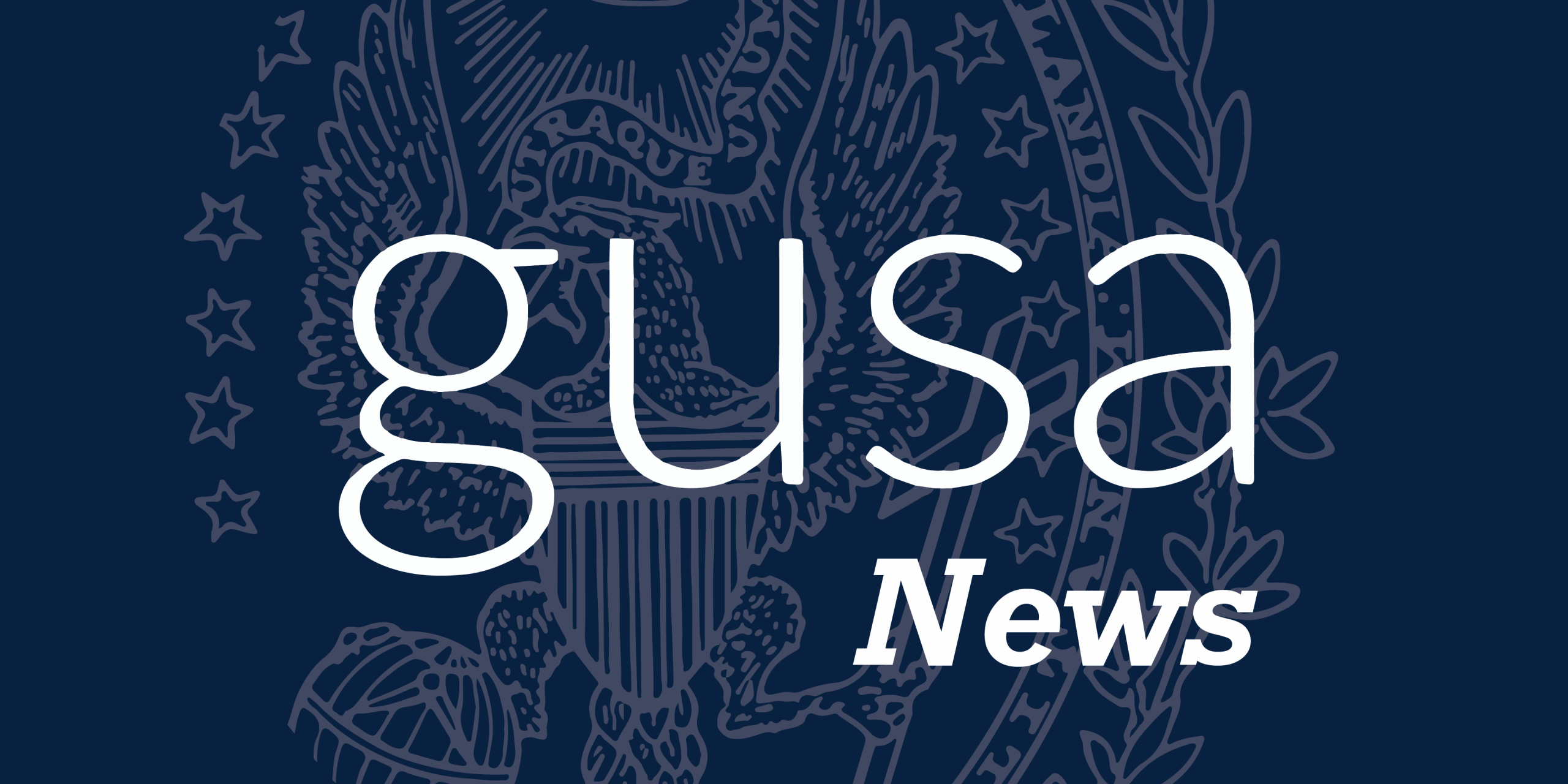For students new to Georgetown, those who have somehow avoided Red Square for weeks, and Hoyas on a Fizz-detox, this week’s GUSA executive election may be a mystery. But for those tirelessly running campaigns, meeting with clubs, and attending town halls, the campaigning concludes, and voting begins tonight.
The Voice sat down with the GUSA executive tickets to discuss policy, qualifications, and the future of the Hilltop under their lead.
Luke Hughes (SFS ’27) / Mikey Williams (SFS ’28)
The Hughes-Williams campaign focuses on efficiency and service, presidential candidate Luke Hughes (SFS ’27) said.
Though Hughes has not held previous positions in GUSA, he is involved in many campus organizations including Lecture Fund, Blue & Gray, Georgetown Storytellers, and Catholic Ministry. He sees his lack of GUSA experience as a potential benefit.
“I think it’s important that there’s someone who has an external point of view, who maybe isn’t caught up in what I kind of see as the GUSA establishment,” Hughes said.
Many students feel frustrated with GUSA’s lack of efficiency, according to Hughes. He believes that his outside perspective could bring in new systems and priorities to improve GUSA’s effectiveness.
Hughes suggested reducing the number of GUSA senators per class as one way to make GUSA run more efficiently.
“If GUSA has less people, then the people that are in GUSA have more burden of responsibility,” Hughes said. “That gives them more ability to interact with the university administration and create real change when they’re the only person who can do that.”
To best service students, the Hughes-Williams leadership would prioritize on-campus issues, Hughes said. He criticized GUSA’s current representatives for commenting on federal government decisions, saying GUSA should not be a “political body.”
In April, GUSA formed a coalition with four other universities and D.C. Public Schools to organize the “Hands Off Our Schools” Rally in response to federal cuts to the Department of Education, federal campaigns to terminate Diversity, Equity, and Inclusion programs, and deportations.
“There’s a certain segment of the population right now at Georgetown that is not being represented,” Hughes said. “GUSA has kind of become like a political mouthpiece.”
Hughes acknowledged that some students will not vote in the GUSA election, but hoped his campaign would help the students who care.
“My goal is not to make every Georgetown student really care about GUSA,” Hughes said. “My goal is to create a GUSA that, when students need us, when we can be of support to them, we’re there.”
Vice presidential candidate Mikey Williams (SFS ’28) did not respond to the Voice’s request for comment.
Saahil Rao (SFS ’27) / Zadie Weaver (CAS ’28)
For presidential candidate Saahil Rao (SFS ’27), the current Speaker of the Senate, he intends to make GUSA more effective.
“What we’ve seen being in the Senate for a year is that GUSA does pass bills, GUSA does have ideas on solutions, but things don’t change,” Rao said.
Vice presidential candidate and Vice Speaker of the Senate, Zadie Weaver (CAS ’28), said the Rao-Weaver ticket would dedicate itself to affirming this mission, leaning into the campaign’s slogan: “Our job is Georgetown.”
“We think it’s important that the executive of GUSA are people who can put all their time and energy, every ounce of problem-solving that they have, into actually changing what’s happening,” Weaver said.
Rao said his past accomplishments in GUSA are indicators of his credentials, citing his work to help cut down audiovisual costs for events in Gaston Hall.
“We were getting proposal after proposal from clubs that wanted to do events in Gaston, and they were getting killed on audiovisual costs,” Rao said. “We passed the bill and worked with CSE [Center of Student Engagement] Director Patrick Ledesma to lower that threshold to $5,000.”
Rao also worked on the campaign to fix the Whisk Espresso Machine last year by creating a petition that many students signed to restore it. The petition garnered 200 signatures in 24 hours, and the espresso machines were fixed in a couple of weeks, according to Rao.
Outside of GUSA, Rao is an advocate for the Student Advocacy Office (SAO), which helps students accused of conduct violations to defend themselves. Rao said that working at SAO has helped Rao understand the impacts of the updated citation policies.
The Rao-Weaver campaign hopes to reinstate the “unofficial warnings” made by RAs before this year, which Rao hopes can bring more life to student spaces.
“I live on Vil A this year, and by midnight it’s dead, because everyone’s nervous that their parties are going to get shut down,” Weaver said. “Georgetown has great academics. We know this. But we also want to make sure people are making friends.”
In particular, the ticket focuses on policies regarding Vil A, a student dormitory known for frequent social events. The campaign has frequently published “Save Vil A” graphics on social media and on flyers across campus, advocating for students to be included on the planning committee for the reconstruction of Vil A and for rooftop common spaces to remain intact.
Another priority for the Rao-Weaver campaign is improving clubs. Weaver says that her experience working as the Fine Arts Liaison for GUSA helped her understand how clubs at Georgetown can improve.
“I would sit in on these Student Advisory Committee meetings, and I was just like, ‘Wow, this is the largest advisory board. They’re the most well-funded, and they’re still working with very tight budgets,’” Weaver said.
Weaver said their ticket aims to enhance clubs at Georgetown by increasing club funding and decreasing event costs.
Rao and Weaver also aim to address transportation issues at Georgetown, hoping to increase the frequency of GUTS buses on weekends and implement a Union Station Holiday Loop.
In particular, Rao and Weaver intend to restore GUTS bus drivers to full university employee status. This effort is part of their larger goal to ensure that students and faculty are protected at Georgetown.
The Rao-Weaver administration spoke to the Voice about how they would implement these policies if elected.
“We hope to have two hubs of policy inside our administration,” Rao said. “One will be our top priorities, the things that we’re going to be liaising with admin directly on, and the other will be the department directors, which every GUSA executive has.”
Weaver also points to the policy memos that the team has drafted thus far.
“On those memos, we’ve included the literal decision makers and, in many cases, how to contact them,” Weaver said. “Even if we don’t win, hopefully the next executive or executives after that can just pick up these memos and get straight to work.”
Ultimately, the administration aims to make GUSA a silent advocate for students.
“I think the future that we see for Georgetown students is one where GUSA kind of gets out of their way quietly, improves their life, and doesn’t ask for praise or attention on it,” Rao said.
They also intend to connect with Georgetown students to understand the changes the student body wants to see.
“I don’t claim to have this unique perspective from every Georgetown student,” Weaver said. “I think all Georgetown students are able to see that real change needs to come.”
Darius Wagner (CAS ’27) / Nazgol Missaghi (CAS ’28)
Current GUSA Vice President and presidential candidate Darius Wagner (CAS ’27) is excited to keep his momentum going. Wagner cites accomplishments like providing rentable hammocks and lowering Georgetown Day restrictions alongside GUSA President Ethan Henshaw (CAS ’26).
“I feel so deeply in continuing to better the student experience in any way I can,” Wagner said. “In this election, we really have a unique opportunity to continue building on the incredible progress that we have made this past year.”
As a member of the Community Scholars Program (CSP) and a founder of Hoyas Against Legacy, Wagner says he wants to represent the diversity of the student body. As a first-generation Black student, he considers his campaign to be focused on inclusivity. With endorsements from La Casa Latina, H*yas For Choice, and GU Pride, he hopes to speak for voices often underrepresented on campus.
“I’m really eager to be sure that I’m listening to the voices that aren’t in the room, because it’s so easy for students from many marginalized and underrepresented backgrounds on campus to have their needs unseen and unmet,” Wagner said.
With a platform that urges the university to “Let Hoyas be Hoyas”, the Wagner-Missaghi ticket plans on producing legislation that will extend quiet hours and push back against the current citation policy in residences. Additionally, the campaign is advocating for increased transparency among university administrators, including increasing student representation in committees and fighting for university workers, such as GUTS bus drivers.
For the swing and foosball table fans, don’t fret: seesaws are next. Campus morale will remain a priority for Wagner if elected.
“Campus thrives on a little bit of whimsy and I’m not ashamed to run on that whimsy, because I think we need a bit of it in our lives,” Wagner said.
Wagner also emphasized GUSA’s role in holding the university accountable under the current Trump Administration. In particular, he plans to advocate for international and undocumented students as GUSA president so they can feel safe on campus.
“When you serve the student body, you also have to be keenly aware of the systems at play that are affecting their day to day lives,” Wagner said. “There is clearly power in students’ voices, and when you’re representing the student body, you need to have the courage to stand up and protect them.”
Wagner highlighted his prior relationships with university administration as a way to ensure his policy goals are implemented. He anticipates members of the current GUSA executive administration will follow him in his journey as president. Wagner also plans to remove cabinet positions within GUSA to increase efficiency.
“With these strategies in place already, students can expect that if I do end up winning, that we will be able to hit the ground running on day one,” Wagner said.
Joining Wagner on his mission is GUSA vice presidential candidate Nazgol Missaghi (CAS ’28).
Although Missaghi is a newcomer to student government, she said her lack of GUSA experience doesn’t equate to a lack of qualifications for the role. As a FOCI (First-Year Orientation to Community Involvement) pre-orientation leader and Vice President of Internal Communications for the Iranian Cultural Society, Missaghi has worked closely with GUSA to build community relationships with the body.
“I’ve seen both GUSA’s potential and its frustrations,” Missaghi wrote to the Voice. “I want to continue driving GUSA as an organization that follows through and stays accountable to students.”
As a pre-med student, Missaghi says she’s not interested in the politics of student government. Her goal is to pass legislation that works for the student body through her connections across various parts of campus.
“The diverse range of experiences that [we have] will help Darius and me actually implement our policies, not just announce them,” Missaghi wrote.
Working with Wagner and GUSA, she hopes to create a Hilltop where students can successfully connect with their peers and administration.
“The future for Georgetown is a campus [where] clubs can plan events without jumping through hoops, students aren’t afraid of unfair citations, workers are protected, and inclusivity isn’t an afterthought,” Missaghi wrote. “Again, we want a creative, fair, transparent, and vibrant Georgetown; a campus where Hoyas can be Hoyas.”
Voting for GUSA Executive will take place from 8 p.m. on Oct. 22 to 8 p.m. on Oct. 24. The ballot will also include voting for freshman and at-large GUSA Senate seats, and two referendums.






